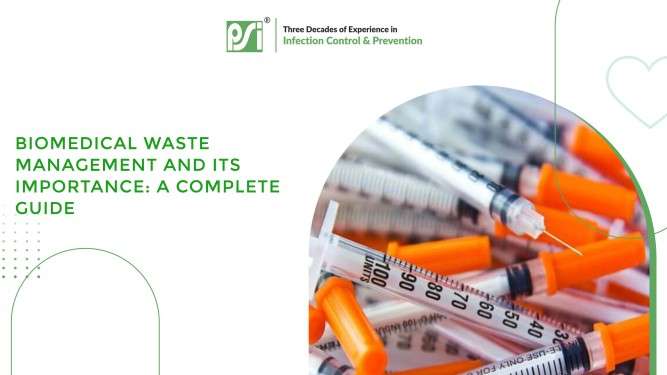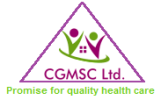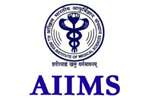One of the best Surgical Disposables company. I am dealing with them for the past 5 years,
their products are world-class. Their approach to trade is professional. All the best wishes to
them.
Biomedical Waste Management and Its Importance: A Complete Guide
- By: Plasti Surge Industries

The Significance of Biomedical Waste Management:
Effective biomedical waste management is vital for several reasons. Firstly, it helps prevent the transmission of infectious diseases. Medical waste, such as used needles, contaminated dressings, and tissues, can harbor pathogens that pose a significant risk to healthcare workers, patients, and the general public. Proper segregation, collection, treatment, and disposal of biomedical waste minimize the chances of infection and ensure a safe healthcare environment.
Secondly, biomedical waste management is essential for environmental protection. Improper disposal of medical waste can contaminate water bodies, soil, and the air, leading to serious environmental pollution. The hazardous substances present in biomedical waste, including heavy metals, chemicals, and pharmaceuticals, can seep into the ecosystem, affecting plant and animal life. Adequate management practices, such as segregation, treatment, and disposal, help prevent pollution and protect the environment.
Biomedical Waste Management in Hospitals:
Hospitals are significant contributors to biomedical waste generation due to the nature of their operations. It is crucial for healthcare institutions to implement effective waste management strategies to protect their staff, patients, and the community. Here are some key aspects of biomedical waste management in hospitals:
1. Segregation: Proper segregation of waste at the point of generation is the first step in effective waste management. Different categories of waste, such as infectious, sharp, pharmaceutical, and non-infectious waste, should be segregated using color-coded bins and bags. This segregation ensures that each type of waste receives appropriate treatment and disposal.
2. Collection and Storage: Collected biomedical waste should be stored in leak-proof, puncture-resistant containers. These containers must be labeled with biohazard symbols and other relevant information. Storage areas should be secure, well-ventilated, and accessible only to authorized personnel.
3. Transportation: Biomedical waste should be transported from healthcare facilities to treatment facilities using dedicated vehicles that comply with safety standards. These vehicles should have appropriate containers for each category of waste and be operated by trained personnel who follow strict protocols to prevent spillage or contamination during transit.
4. Treatment and Disposal: Biomedical waste requires specialized treatment to render it harmless before final disposal. Common treatment methods include autoclaving, incineration, microwaving, and chemical disinfection. It is essential to comply with local regulations and guidelines while selecting the appropriate treatment method. After treatment, the waste can be safely disposed of in accordance with the prescribed protocols.
Regulations and Guidelines:
To ensure proper management of biomedical waste, various countries have established regulations and guidelines. For instance, in India, the Bio-Medical Waste Management Rules were enacted in 2016 to provide a comprehensive framework for biomedical waste management. These rules cover various aspects, including waste segregation, treatment, transportation, and record-keeping. Healthcare facilities must adhere to these rules to maintain compliance and avoid penalties.
Conclusion:
Biomedical waste management is a critical aspect of healthcare operations. It protects healthcare workers, patients, and the environment from the hazards associated with medical waste. By implementing proper segregation, collection, treatment, and disposal practices, hospitals can contribute to a safer and healthier society. Compliance with regulations and guidelines ensures that biomedical waste is managed effectively and in accordance with the best practices. Let us all recognize the importance of biomedical waste management and work together to create a culture of responsible waste disposal in healthcare settings.
Healthcare institutions should prioritize training and educating their staff on the proper procedures for handling biomedical waste. This includes providing clear guidelines on waste segregation, labeling, and storage. Regular training sessions and awareness programs can help reinforce the importance of following the established protocols and ensure that all employees are well-informed and accountable for their actions.
Furthermore, hospitals should establish robust monitoring and auditing mechanisms to assess the effectiveness of their waste management systems. Regular inspections and assessments can identify any gaps or areas for improvement, allowing institutions to take corrective actions promptly. It is also crucial to maintain detailed records of waste generation, treatment, and disposal, as this information can be used to track trends, identify areas of concern, and demonstrate compliance with regulations.
In addition to the efforts within healthcare facilities, it is essential for governments, regulatory bodies, and waste management authorities to collaborate and provide the necessary infrastructure and resources for the proper disposal of biomedical waste. This includes the establishment of well-equipped treatment facilities, the provision of safe transportation options, and the implementation of stringent monitoring and enforcement mechanisms.
The role of technology in biomedical waste management should not be overlooked. Innovative solutions, such as automated waste segregation systems, tracking software, and real-time monitoring tools, can enhance efficiency and accuracy in waste management processes. These technological advancements can streamline waste segregation, improve record-keeping, and facilitate better decision-making for waste treatment and disposal.
Ultimately, the responsibility of biomedical waste management extends beyond the healthcare industry. Individuals can also contribute to this cause by being aware of the potential hazards of biomedical waste and properly disposing of any medical waste they generate at home. This includes medications, syringes, and other materials that may pose risks if not handled and disposed of correctly.
One of the best companies to partner with. Very responsive and best product quality.
Good experience and corporation for many years. Timely services are provided.
We have been associated with PSI since more than 20 years now. They have superior products, prompt service & courteous people. Using PSI’s products in turn makes our customer happy and helps us to do more business. Overall truly delighted with their customer service.














_iCEz.jpeg)
 +91-7798800781
+91-7798800781






